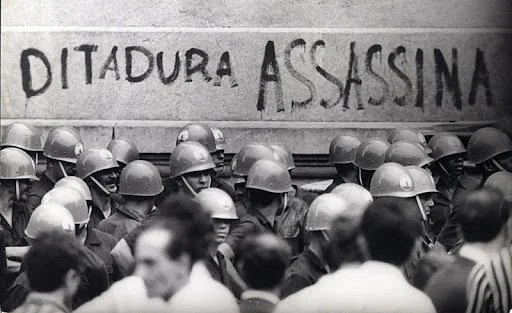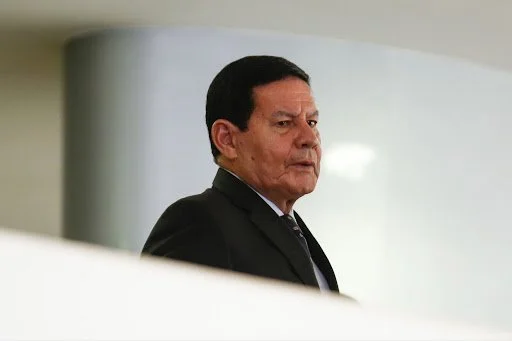Brazil’s Superior Military Court Audio Proves Prisoners Were Tortured During Military Dictatorship Period
Student Protest during the Military Dictatorship in Brazil. Photo: Arquivo Nacional / Brasil de Fato
From the suspicious death of Zuzu Angel, a Brazilian fashion designer, to the alleged suicide of Vladmir Herzog, a Brazilian-Croatian journalist, the repression and violence of the 21 years of Military Dictatorship in Brazil are coming to light.
This Sunday, April 17, 10,000 hours of audio were made public by journalist Miriam Leitão, proving that the Superior Military Court knew about torture practiced during Brazil’s military dictatorship. The materials confirmed the violence that a great part of Brazil already suspected.
The transcripts of the sessions show that Brazilian generals and ministers were aware of the number of allegations of torture suffered by prisoners at the time, but harbored disbelief and feared taking them forward.
In one of the reports we hear General Rodrigo Octávio describing how a three-month pregnant woman suffered an abortion after "physical punishment" at Doi-Codi, the intelligence and political repression agency during the military dictatorship. He reports that she, along with her husband, suffered "electric shocks in her genitals."
The audio was gathered and analyzed by Professor Carlos Fico of the Federal University of Rio de Janeiro, who researches the memory of the military regime. They were only released by the Superior Military Court due to a decision by the Federal Supreme Court. The professor claims that he has been analyzing the audio since 2018 and is already halfway through the tapes, which cover the years of 1975 to 1979. He also added that, although some people try to deny that there was torture in the dictatorship, it is up to historians to present the story as is.
Vice President of Brazil, General Mourão, laughed when asked about the possibility of investigating the material revealed. Photo: Sérgio Lima / Poder 360
As a response to the recordings, General Mourão, vice president of Brazil, questioned what they meant to prove, claiming, “The guys are all dead, gee. Are you going to bring the guys back from the grave?” This statement summarizes the ideological stance of the current Brazilian government, in which the president himself praises Coronel Ustra, one of the biggest torturers of the period, calling him a national hero.
Unfortunately, Brazil still sees a strong sense of denialism towards its military dictatorship. In addition to part of the population denying that there even was a military coup in 1964 and the use of torture methods, there are some who not only recognize torture but also justify it. These opinions have become more explicit and noticeable after Bolsonaro’s rise to power. But with the release of these audios comes hope to change the narrative; if torture can no longer be denied, doors can open for discussion.


